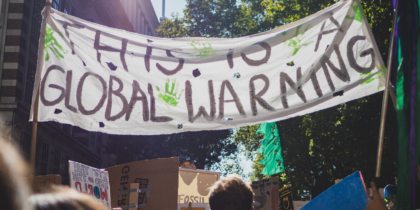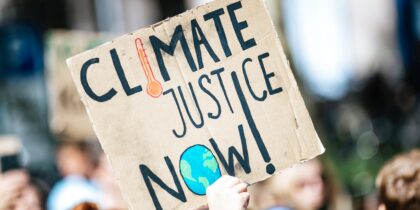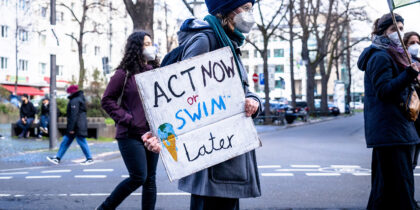By Andy Bell
Today the Intergovernmental Panel on Climate Change (IPCC) published its ‘Sixth Assessment Report’ on the impacts of climate change worldwide.
For the first time, the IPCC includes a focus on the mental health impacts of the crisis as well as the better established impacts on the physical environment and sustainability. In its chapter on health and wellbeing it reviews evidence from around the world on the direct and indirect harms to mental health. These include the direct impacts of extreme weather events (including flooding, wildfires, heatwaves and erosion) as well as the indirect, but equally if not more significant, effects of displacement, conflict and impoverishment on mental health. And for children and young people in particular, the report notes that anxiety and distress relating to the climate crisis are a further pressure on mental health.
Every year, evidence of the mental health harms caused by the climate crisis is coming into a sharper focus. We know that people directly affected by severe weather events are at greater risk of poor mental health for years afterwards – and the greatest risks seem to be felt by those with the least resources or power. And more evidence of the immediate and longer term threats to mental health is likely to emerge as more research unearths impacts from the escalating effects on people and communities worldwide.
But the IPCC report also includes significant notes of hope – that if we take action now, we can limit the damage and mitigate risks. It states that “Sustainable and climate-resilient development that decreases exposure, vulnerability, and societal inequity…has the potential to reduce but not necessarily eliminate climate change impacts on health…”
In other words, there is still the potential to take steps that will at one and the same time mitigate the risks of (or from) the climate crisis and boost mental and physical health. While slowing or reducing global heating requires international action and commitment, it’s also about what happens locally. Improved flood defences, more accessible green spaces, better insulated homes and reduced pollution have been demonstrated to boost mental health as well as mitigate climate risks in communities. At a national level, reducing poverty and income inequality can also benefit mental health as well as reducing people’s exposure to climate-related harm.
The report makes a call for “coordinated and multi-sectoral planning” to tackle the health impacts of the climate crisis. It notes that the Covid-19 pandemic has shown the importance and benefits of working across different systems to a shared goal. So building more equitable societies with lower carbon use can improve both environmental stability and human wellbeing – reducing the risks of extreme weather and its effects while also reducing the risk of conflict.
Climate change is already affecting our mental health. It’s not a distant future risk but a reality in our lives now. For some communities, its impacts are very evident and urgent. But the actions we take now can help to protect people’s mental health and boost communities facing the biggest risks. This won’t wait.







